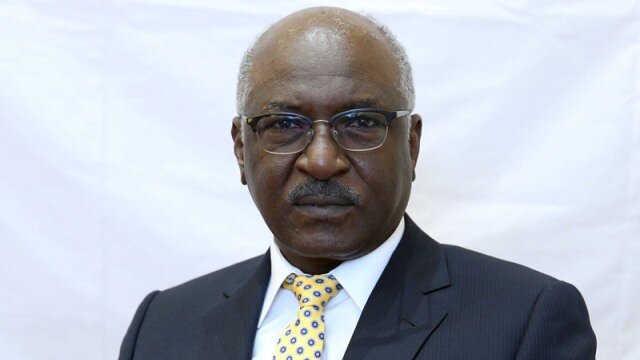Khartoum – (Muawad Rashid - Al-Sammani Awadallah ) Ambassador Extraordinary and Plenipotentiary of the Federal Democratic Republic of Ethiopia H.E. Mulugeta Zewdie
accused some parties of transforming the Grand Ethiopian Renaissance Dam (GERD) from technical to political issue, calling for the necessity of not involving the political issues in GERD and to concentrate on the technical side set by the experts of the concerned countries.
He said in an exclusive interview with Sudan Vision (to be published in the upcoming days), that the construction of GERD should not be a source of tension between Ethiopia and other countries considering that the dam is a source of integration and exchange of benefits among the concerned countries.
He added that the negative statements and deliberations are expected but will vanish after the completion of the GERD as it will be considered as an out of date history after the people reap its fruits, affirming that Ethiopia did not mean to harm any neighboring state from the construction of the GERD or the Nile Basin countries, but it meant to serve its interests as well as the interests of those countries.
Zewdie disclosed that GERD crisis started when its agendas were transformed to political ones, adding that Ethiopia will not retract from the construction as long as the joint technical committees is dealing with it technically and not politically.
He expressed his surprise over the negative statements of the Egyptian media outlets over the GERD, describing those statements as an attempt to create agendas which are far from the reality.
On the supportive stance of Sudan to Ethiopia, Zewdie affirmed that Sudan’s support is not in sympathy with Ethiopia or adopting negative stance towards Egypt; but it comes from serving its interests after the Sudanese experts affirmed that Sudan will have its complete quota of the water after the construction of the GERD.
Zewdie set a clear timetable of his diplomatic mission in Sudan, as he divided the diplomatic dossier to three major issues including the bilateral relations between Khartoum and Addis Ababa especially in the implementation of the 20 agreements signed recently between the two countries. He affirmed that he will also deal with the issue of the reconciling the statuses of the Ethiopian nationals living in Sudan to avoid any violations to the migration laws, pointing out that the two countries share identical views on regional and international issues.
He affirmed that there is no any security threat along the borders of the two countries, adding that the joint committees are doing well to accomplish the demarcation process. He pointed out that the people of the two countries along the borders are living in brotherly spirits and interests exchange which represent a positive process that could form the foundation stone for the four freedoms agreement a matter which will lead to the integration between the two countries.
He concluded that integration among the countries is not selected but is dictated by the reality, pointing out that the political, economic and security sectors relations between Sudan and Ethiopia have reached advanced stages, affirming that the rapprochement between Khartoum and Addis Ababa doesn’t aim at harming any other country despite the misunderstanding of some parties to this rapprochement.
-
CBOS: 18 Pounds Indicative Rate of Dollar
-
Governor: Border Shutdown with Eritrea Made Disarmament Campaign EasierNext >

